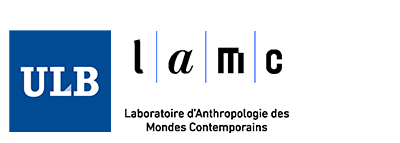Dans la même rubrique
-
Partager cette page
DI NUNZIO Marco
Chercheur visiteur, Docteur en Sciences Politiques et Sociales
 |
Adresse courrier Université libre de Bruxelles |
Bio
I am a Lecturer at the Department of African Studies and Anthropology at the University of Birmingham and Associate Member at Laboratoire d'Anthropologie des Mondes Contemporains at ULB.
As a social and political anthropologist, I am concerned with documenting how development produces marginality as well as exploring how anthropological research on the ordinary and the everyday life can help redefine what we mean by development and what development is for.
I have carried out research in Addis Ababa (Ethiopia) and more recently Lagos (Nigeria), Washington DC (USA) and Naples (Italy), investigating the economies of the street, crime and policing, authoritarianism and development, migration, entrepreneurship and micro-finance, the politics of justice, labour and the construction business, professional ethics and architecture practice, planning and the political economy of housing.
My first book, entitled The Act of Living. Street life, Marginality and Development in urban Ethiopia (Cornell University Press), explores the relations between economic growth and experiences of marginality in inner city Addis Ababa, Ethiopia. By documenting how the biographies of two street hustlers intertwine with Ethiopia’s history, this book investigates why development continues to fail the poor, how marginality is understood and acted upon in a time of promise and why poor people’s claims for open-endedness can constitute the grounds on which to imagine better and more just alternative futures.
I am currently carrying out research for a second book project, provisionally entitled, Conspiracies to Build: The Political and Moral Economies of City Building. Conspiracies to Build focuses on the construction industry, urban development and politics of responsibility in Addis Ababa’s construction booms. It investigates the effects of the growing investment into African cities on how, why and by whom the moral and political ownership of urban development is claimed and maintained. By outlining a critique of dominant notions of the politically significant, the economically sound and the morally just underpinning Ethiopia’s construction boom, this book is intended to be a call for an anthropological commitment to an urban politics of collective responsibility and social justice.
